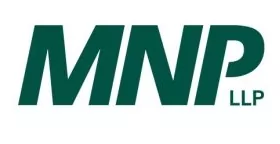On June 24, 2015, the World Customs Organization (WCO) published the WCO Guide to Customs Valuation and Transfer Pricing (the Guide). The primary purpose of the Guide is to assist customs officials in understanding the relationship between customs valuation and transfer pricing. However, the WCO also recommends members of the private sector and tax administrations with an interest in the topic read the Guide as well.
The navigation of transfer pricing and customs frameworks for intercompany sales of tangible goods is an issue that concerns multinational enterprises (MNEs), tax administrations and customs. The Guide does not provide a definitive approach to dealing with the issue, but offers technical background and sharing of national practices and ideas with the goal of fostering a more consistent approach to the issue. The WCO's Technical Committee on Customs Valuation continues to discuss the issue and the WCO is also working with the Organisation for Economic Cooperation and Development (OECD) and the World Bank Group to encourage customs and tax administrations to establish two-way lines of communications. This will assist in exchanging knowledge, skills and data to ensure each authority has the broadest understanding of an MNE's business.
In fact, the OECD and the WCO held two joint conferences in 2006 and 2007 with specialists from customs and tax administrations and the private sector and formed a focus group to consider the key themes coming out of these conferences. While there has been some suggestion that there should be formal alignment of customs valuation and transfer pricing methodologies, the Guide states it is clear that harmonizing of customs and transfer pricing is not realistic; therefore the challenge is to consider what is possible within the constraints of the World Trade Organisation (WTO) agreement provisions, which WTO Member countries must follow.
In addition to providing an overview of customs and transfer pricing rules, the Guide discusses the linkages between transfer pricing and customs valuation and the role of transfer pricing documentation for customs purposes. The Guide also contains an Annex of National Initiatives undertaken in different countries. The Annex notes the recent policy issued by Canada Border Services Agency (CBSA) relating to the treatment of downward transfer pricing adjustments as laid out in CBSA Customs Notice 15-001. This new policy acknowledges the transfer pricing reality of many MNEs which implement transfer pricing adjustments during and / or at the end of the year to effect an arm's-length result. The policy allows for the application of a refund for duties where there is a downward transfer pricing adjustment to the price of goods imported from a related party.
While there is no immediate implication for MNEs involved in the intercompany sale of tangible goods, the release of the Guide could signal further alignment of customs and transfer pricing in both Canada and other countries worldwide. Nonetheless, MNE's should consider the role of their transfer pricing documentation in the context of valuation for customs purposes and also be aware of the customs implications of transfer pricing adjustments to the price of tangible goods.
The WCO Guide to Customs Valuation and Transfer Pricing is
available on the WCO's website at the following link:
http://www.wcoomd.org/en/topics/key-issues/revenue-package/~/media/36DE1A4DC54B47109514FFCD0AAE6B0A.ashx
The content of this article is intended to provide a general guide to the subject matter. Specialist advice should be sought about your specific circumstances.


